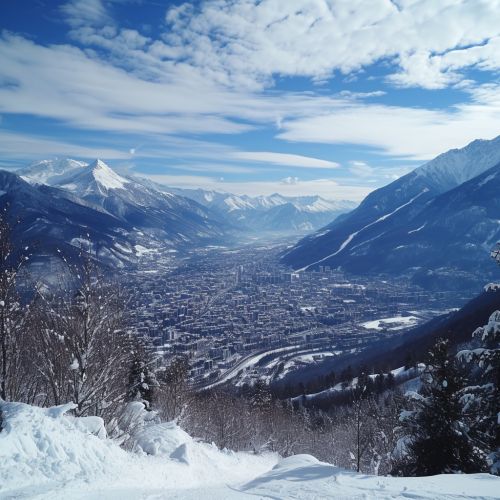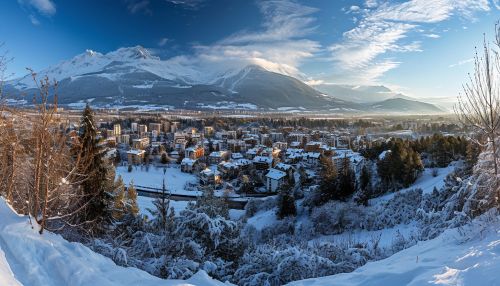1992 Winter Olympics
Overview
The 1992 Winter Olympics, officially known as the XVI Olympic Winter Games, were a major international multi-sport event held in Albertville, France, from February 8 to 23, 1992. Albertville was selected as the host city in 1986, beating out several other candidate cities. The Games were the last to be held in the same year as the Summer Olympics, as the International Olympic Committee (IOC) decided to stagger the Summer and Winter Games in alternating even-numbered years.


Host Selection
Albertville was chosen as the host city during the 91st IOC Session in Lausanne in October 1986. Other candidate cities included Anchorage, United States; Berchtesgaden, Germany; Cortina d'Ampezzo, Italy; Lillehammer, Norway; Falun, Sweden; and Sofia, Bulgaria. Albertville was selected in the seventh round of voting, receiving 51 votes to Sofia's 25.
Participating Nations
A total of 64 nations sent athletes to compete in the 1992 Winter Olympics. This included six nations making their Winter Olympic debut: Algeria, Bermuda, Brazil, Honduras, Ireland, and Swaziland. The Unified Team, consisting of athletes from the former Soviet Union, also competed for the first time.
Sports
The 1992 Winter Olympics featured 57 events in 6 sports. These sports were alpine skiing, biathlon, bobsleigh, cross-country skiing, figure skating, freestyle skiing, ice hockey, luge, Nordic combined, short track speed skating, ski jumping, and speed skating. Freestyle skiing and short track speed skating were included as official sports for the first time.
Medal Count
Germany led the medal count with a total of 26 medals, 10 of which were gold. The Unified Team was second with 23 medals, 9 of them gold. Norway finished third with 20 medals, 9 of them gold.
Legacy
The 1992 Winter Olympics had a significant impact on the development of Albertville and the surrounding region. Many of the venues built for the Games are still in use today, serving as training facilities for athletes and hosting various sporting events. The Games also boosted tourism in the region and led to improvements in infrastructure, such as roads and transportation systems.
See Also
1992 Summer Olympics 1994 Winter Olympics Winter Olympic Games
